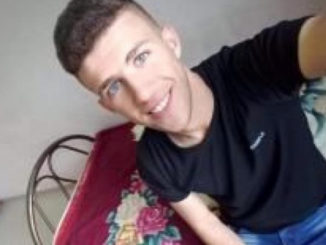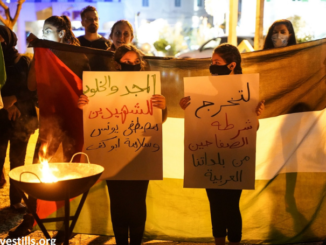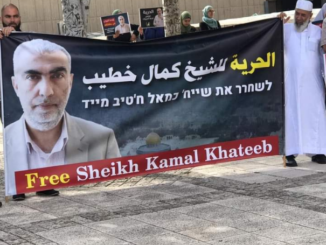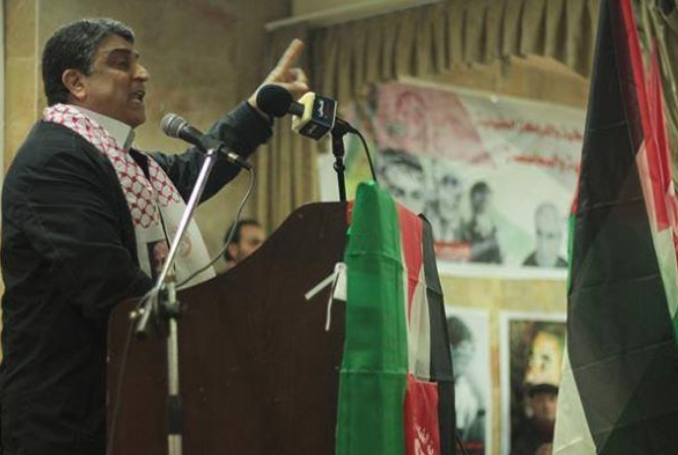
The unity of the Palestinian people in resistance since the May 2021 uprising has continued to rattle the crisis-ridden corridors of power in Tel Aviv. Protests in the supposed heartlands of the Zionist state have taken on a new sense of defiance, while young women on the frontlines against colonization in the Naqab have symbolized a collective will to resist.
Internally displaced Palestinians and those who remained on ‘Israeli’ land after the ethnic cleansing operations of 1948 and 1967 have been seen as a fait accompli by politicians, academics, liberals and Palestine’s supposed leaders. But now new generations are developing a rejectionist politics echoing the pioneering resistance movement, Abna’ al-Balad.
Founding member and frequent political prisoner, Raja Eghbarieh has faced continuing attacks from the Zionist state, but takes huge encouragement from the renewed Palestinian resistance across lands occupied since 1948:
“The power of this movement caught the attention of the world, including those allied to Israel, threatening to imbalance existing relationships and bring a new reality, including for the ‘48 Palestinians, whom Israel and the UN consider to be part of the state of Israel. We are a people united historically, presently and by our future destiny, with ‘48 Palestinians the most threatening section towards Israel’s existence as a state.”
This interview with comrade Raja took place on the anniversary of the 2021 uprising and it is with regret that shortly after, the Palestinian movement lost Ahmad Eghbarieh (Abu Yasar), brother of Raja, and a veteran struggler in his own right. We send deep sympathies to his friends and comrades, and particularly to Raja Eghbarieh, who holds the lantern of Abu Yasar’s commitment to a new future.
Abna’ al Balad was forged through the 1976 Land Day movement and its massacre by Zionist forces. Dedicated to land and liberation, the group battled under the revolutionary banner of al-Hadaf (‘the target’), the socialist newspaper established by Ghassan Kanafani. Raja summarizes the role he and the organization have played in the struggle for a new Palestinian movement as being “in the vanguard since the inception of the Palestinian struggle on the inside.”
This task has meant constantly trying to “fuse” the fightback in ‘48 lands with the uprisings of Palestinians, with the battle over Jerusalem and al-Aqsa “constituting one of the biggest fronts of activity for ‘48 Palestinians.”
From the outset, Abna’ al-Balad opposed collaboration with the supposed democratic processes of the Zionist state:
“We were the first organization to raise the Palestinian flag in ‘48 lands after Land Day in 1976 and the first organization to call for a boycott of elections and the Knesset (Israeli parliament). This is still our position.”
In 2018, Raja was imprisoned for writing pro-Palestine social media posts and endured over two years under house arrest. Though this process has seen Raja expelled from his work in the education sector and the organization’s newspapers shut down, he and other activists continue to fight these “entirely political” charges. There is a deeper history to these most recent attacks and Raja spent four years imprisoned under ‘administrative detention’ between 1980 and 1986:
“Zionist authorities targeted me ever since I began organizing with the Abna’ al-Balad movement in the latter part of the 1970s, aiming to halt my involvement in any political activities at all. They have repeatedly arrested me over involvement in demonstrations and political writing.”
Calling for a boycott of Zionist institutions, Abna’ al-Balad offer a fierce commentary on those claiming to represent the ‘Arab sector’ in the Knesset, with Raja explaining that “even when they issue statements against the crimes of Israeli governments in which they participate, they continue to work within the parliament of the state that gives them confidence.”
This critique of bourgeois collaborationist forces on the Palestinian scene saw the late Ahmad Eghbarieh face attack from those allied to the Palestinian Authority (PA), particularly as he and Abna’ al-Balad demanded justice for PA-murdered activist Nizar Banat. Echoing the critiques of other Palestinians, including Masar Badil activists and contributors to the Our Vision For Liberation book, comrade Raja sees the Oslo generation of politicians as barriers to Palestinian freedom:
“Our view on the PLO is that it no longer exists except as a tool for Mahmoud Abbas and his awful authority, handing ever more concessions to the occupation. Particularly after the cowardly Oslo agreement, which handed over 78% of the land of Palestine and recognized the legitimacy of a state called Israel, while relinquishing the fact that Palestinians remain inside, and remain part of the cause and fate of the whole Palestinian people.”
The position of the Abbas regime extends to “labeling Palestinians on the inside as Israelis” and asserting that their only struggle is to achieve equality as Israeli citizens. Their abandonment of those on the inside during ‘peace’ negotiations could not, however, successfully suppress the aspirations of the Palestinian masses for freedom, with the May 2021 uprising “demonstrating what was already there in terms of commitment to the people’s struggle, enduring since Land Day in 1976, with the massacre of six workers and the injury and arrest of hundreds of others.”
Prior to 2021, ‘48 Palestinians had “participated in all of the intifadas in the West Bank and Gaza, and in the armed uprisings of the Palestinian people.” Raja points to the martyrdom of tens of ‘48 Palestinians during the October 2000 intifada, as youth rose up alongside others in historic Palestine.
A year after May 2021, Palestinians carried out a march of return to the village of Mi’ar, under the slogan, ‘their independence, our return,” with demonstrations also taking place in Lydd, Tel Aviv and other cities, proudly flying high the Palestinian flag and supporting the resistance. These events showed that “there is no going back on our right of return, with the active involvement of thousands of Palestinians in al-Dakhil.” Crucially, Palestinian Bedouin youth have been central to fighting back against Israeli plans to colonize the southern regions of historic Palestine. Comrade Raja argues that “the fight to keep hold of the land of the Naqab is one of the most important battles for the very simple and decisive reason that the land is ours to defend and keep in our possession.”
The major offensive unleashed by the Zionist state with new fervor in past months is a recognition of the fact that Palestinians still hold onto 800,000 dunums of land (around 800 square kilometers) that the Zionist JNF seeks to colonize. Comrade Raja points out the aims of this onslaught:
“The Zionist entity wishes to take the remaining land from us, while forcing Bedouins into cramped city spaces far from their social customs, as happened in the city of Rahat. The aim is to keep under tight control the remaining Palestinians on Naqab land. Before 1948, Palestinians owned around 94% of the land inside what is now the Green Line, and now own only the land on which they have been able to build homes, or 2.5% of the land. What remains for us is the land of the Naqab, giving it heightened importance.”
The ultimate block on these plans for outright conquest has been the movement of Palestinian youth in defense of the land. Raja warns that without the kind of mass movement epitomized by energetic young Bedouin women, men and communities confronting racist colonizers on the land, the Naqab faces the extreme colonization witnessed further north.
As Zionist politicians continue to speculate on the future survival of their political project, the message is that the Palestinian people will decide.
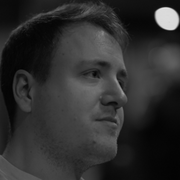
– Louis Brehony is a musician, activist, researcher and educator. He is author of the book Palestinian Music in Exile: Voices of Resistance (2023), editor of Ghassan Kanafani: Selected Political Writings (2024), and director of the award-winning film Kofia: A Revolution Through Music (2021). He writes regularly on Palestine and political culture and performs internationally as a buzuq player and guitarist. He contributed this article to The Palestine Chronicle.

